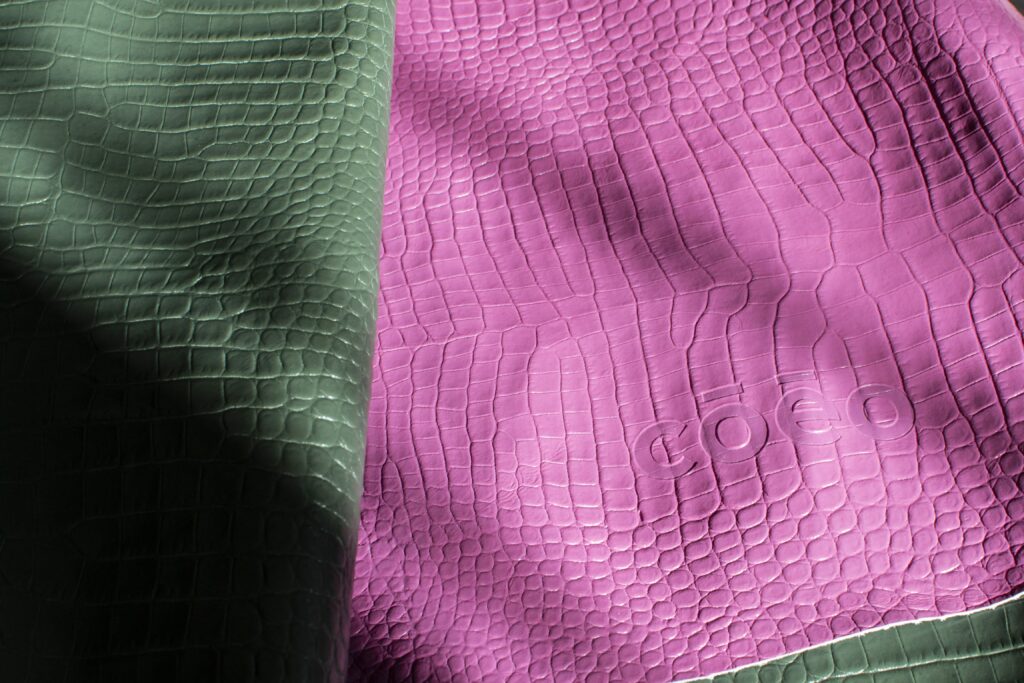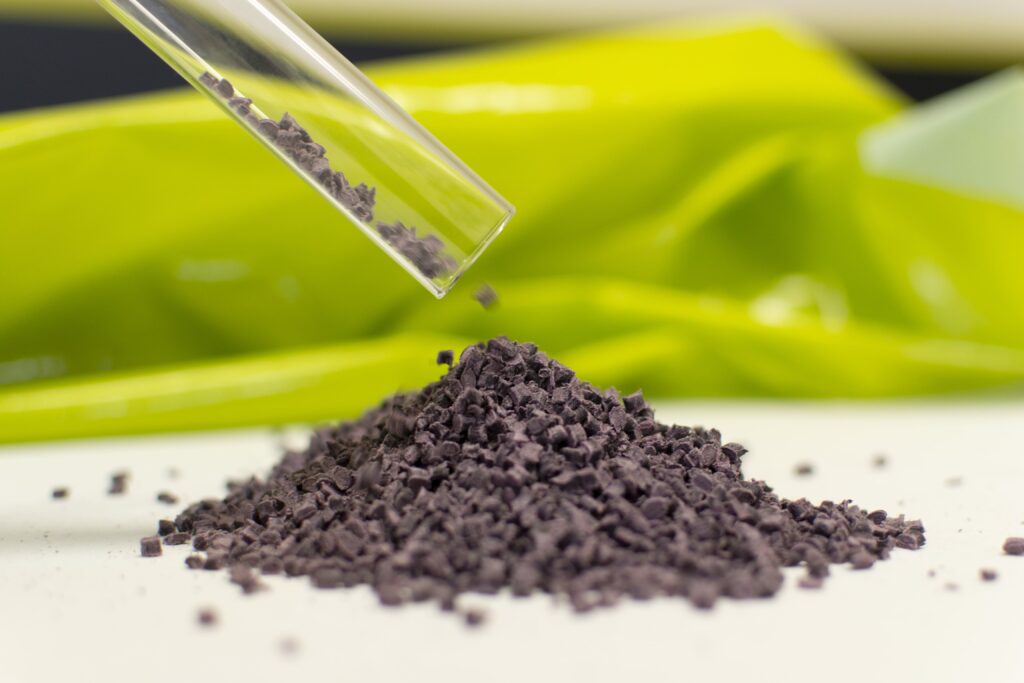In Italy’s fashion and design heartland, a new player is challenging the way we think about waste. CDC Studio, an innovation hub based in the province Pisa, is pioneering technologies that turn textile and leather scraps into new high-performance materials, helping industries cut carbon, reduce disposal costs and make circularity truly scalable.
Founded in 2020 by Cristina Di Carlo and Matteo Corbellini, CDC Studio’s mission is clear: to give a second life to discarded materials that would otherwise end up in landfills or incinerators. Their patented solutions, CŌĒO, MIKTÒS and VERSO, are reshaping how the fashion, design and manufacturing sectors approach material innovation.
We want to turn waste into opportunity, making sustainability a practical, profitable choice for every manufacturer.
Cristina Di Carlo, Founder and CEO of CDC Studio
Turning waste into value
Every year, more than 92 million tonnes of textile waste are generated globally, yet less than 1% is recycled. Mixed-fibre textiles are particularly challenging to process, meaning most end up in landfills or incinerators.
CDC Studio addresses this challenge through its suite of proprietary technologies: MIKTÒS, CŌĒO and VERSO.
- MIKTÒS transforms mixed textile waste, traditionally non-recyclable, into a high-performance polymer that can replace virgin plastic in sectors such as fashion, furniture, packaging and construction. The process requires no fibre separation, chemical additives or solvents, and the resulting polymer is recyclable and compatible with standard industrial machinery.
- CŌĒO upcycles unsold or defective textiles and leathers by coating them with 100% post-consumer recycled plastic, certified by EuCertPlast. The result is a new technical fabric that is waterproof, windproof and durable.
- VERSO, the newest technology, applies the MIKTÒS process to waste streams containing eco-leather and polyurethane-based materials, expanding CDC Studio’s reach across manufacturing sectors.

A detail of the CŌĒO technology.
With MIKTÒS, even companies that can’t reuse all their waste internally can sell the resulting polymer to third parties, turning disposal costs into new value streams.
Cristina Di Carlo, Founder and CEO of CDC Studio
A recent Life Cycle Assessment (LCA) confirmed that MIKTÒS has an environmental impact of only 902 mPt per tonne: dramatically lower than the footprint of both virgin plastics and incinerated textiles.

A detail of the Miktòs technology.
Technology designed for real-world adoption
A key advantage of CDC Studio’s technologies lies in their compatibility with existing production lines. Manufacturers can adopt circular practices without investing in new machinery: a crucial enabler for scalability across the supply chain.
Applications range from fashion and furniture to automotive and packaging. A furniture producer, for example, can convert its own offcuts into polymer granules for internal use, while a fashion brand can repurpose past-season fabrics into new sustainable collections.
Scaling innovation, sustainably
After several years of R&D, CDC Studio has reached commercial readiness. CŌĒO is already on the market (TRL 9) and MIKTÒS is entering industrial-scale production (TRL 8).
The company is planning a central production hub supported by micro-plants close to waste sources: a distributed model that cuts logistics costs and supports local supply chains. The first facility, with a capacity of 940 tonnes per year, is expected to launch in 2026.
The team has also expanded rapidly, growing from three to eight professionals in the past year, five of whom are women, bringing expertise in chemistry, product design, finance, operations, and sustainability.
This approach supports Europe’s Ecodesign and Extended Producer Responsibility (EPR) policies, which require companies to manage their products’ end-of-life responsibly and promote circular production.
Empowered by collaboration and international connections
Through EIT Manufacturing, CDC Studio has received targeted mentoring, visibility at major industry events and access to an international network of experts and innovators.
As a founder, EIT Manufacturing gave me more than just mentorship: it allowed me to engage with other entrepreneurs facing similar challenges. That exchange of ideas helped me refine our strategy, navigate uncertainty and grow the project with a stronger, more structured vision.
Cristina Di Carlo, Founder and CEO of CDC Studio
For Cristina and her team, the most valuable outcome of this experience has been the network of professionals that CDC Studio can now rely on to scale its technologies and strengthen its position within the European manufacturing ecosystem.
Building the circular industry of tomorrow
Looking ahead, CDC Studio aims to become an international benchmark for converting textiles into polymers, establishing a network of facilities in key manufacturing regions worldwide.
We knew we were on the right track when companies that once ignored us came back as clients. The market is evolving fast, and circularity is no longer optional: it’s becoming the new industry standard.
Cristina Di Carlo, Founder and CEO of CDC Studio
By combining scientific rigour, design sensibility and a clear environmental mission, CDC Studio exemplifies how innovation and sustainability can go hand in hand, redefining what’s possible for the next generation of manufacturing.


